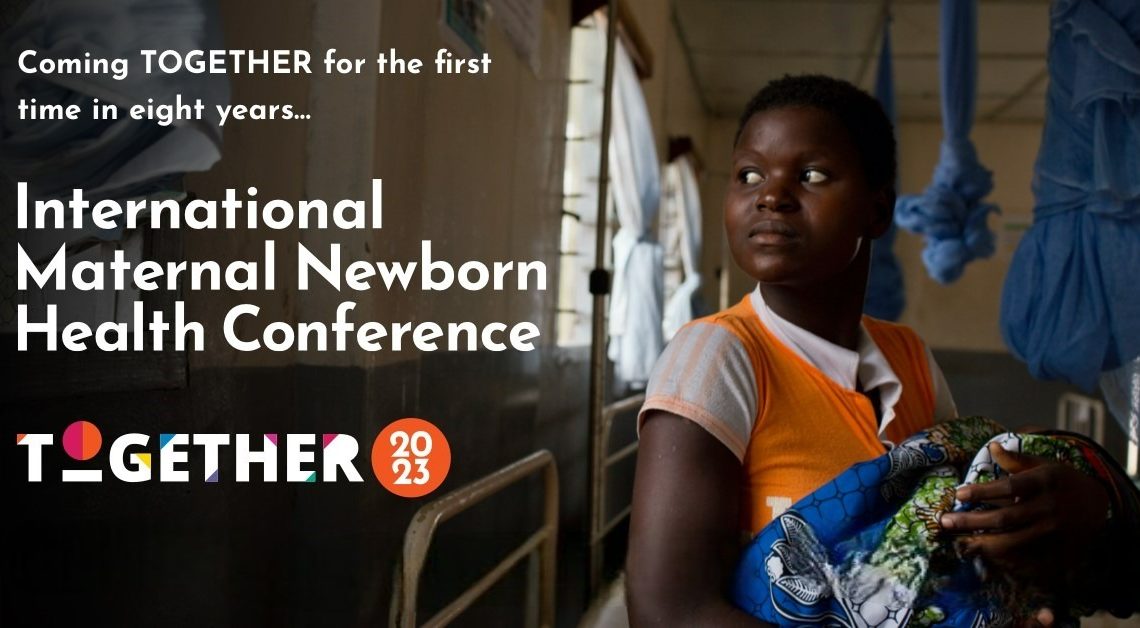“The biggest stakeholder we are solving for in terms of quality (of care) is the patient.” — Ms Caroline Wanjiru Kihusa, Co-Founder, Still A Mum, at the International Maternal Newborn Health Conference (IMNHC) in Cape Town, South Africa, 10th May 2023.
From the 8th to the 11th of May 2023, stakeholders worldwide gathered in Cape Town, South Africa, for the first biennial International Maternal Newborn Health Conference (IMNHC). The goal was to deliberate on solutions to accelerate progress in maternal and newborn survival and prevent stillbirths in a coordinated and inclusive manner. The conference was hosted by the Government of South Africa and AlignMNH — a global initiative funded by the Bill & Melinda Gates Foundation in collaboration with the United States Agency for International Development (USAID) and in partnership with UNFPA, UNICEF, and World Bank.
Approximately 1700 delegates from ninety-six countries — including twenty-eight official country delegations — participated in over two hundred sessions aimed at accelerating progress and generating solutions for maternal and newborn health.
In May 2023, the World Health Organization (WHO), UNICEF, and UNFPA jointly released a report titled “Improving Maternal and Newborn Health and survival and reducing stillbirth, “ assessing the latest maternal and newborn health data. The report revealed a concerning lack of progress in improving survival rates since 2015, with around 290,000 global maternal deaths, 1.9 million stillbirths — babies who die after 28 weeks of pregnancy — and a staggering 2.3 million newborn deaths, which are deaths in the first month of life, occurring annually. This amounts to a devastating total of 4.5 million maternal and newborn deaths and stillbirths yearly.
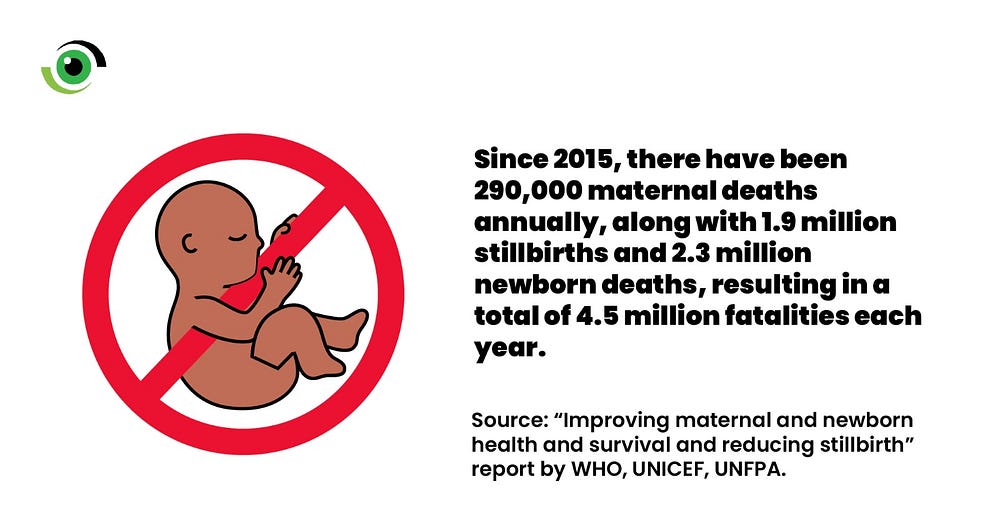
The fifth conference plenary, “Building Strong Systems to Deliver Quality Maternal and Newborn Health Services”, discussed the challenges in providing quality maternal and newborn health care on a large scale. It included a presentation on why quality is important for progress and insights from experts on the factors required to build strong health systems capable of overcoming challenges in providing quality care for maternal and newborn health.
Setting the context for building strong systems to deliver better quality care.
In her opening presentation, Dr Queen Dube, Paediatrician, Clinical Epidemiologist, and Chief of Health Services at the Malawi Ministry of Health, said, “Coverage on its own is not enough. For us to get the impact that is needed, we must mix coverage and quality. This marriage must work for us to have an impact.” Dr Dube described how closing the quality gap in maternity and newborn care can save the lives of an estimated 2 million women and newborns in one year. She iterated that quality of care necessitates a systems-based approach that includes important components such as financing, infrastructure, information systems, human resources, leadership and governance, and infection prevention and control, with family-centred care at the centre.
Dr Dube further noted that providers must transition from a vertically fragmented approach to care to an integrated model of care that assures “that every woman everywhere, at the end of her pregnancy journey, returns home healthy and with a healthy baby”. To successfully implement this integrated care model, it is critical to incorporate more ambitious and well-budgeted financing mechanisms that can be effectively tracked to ensure sustainable impact.
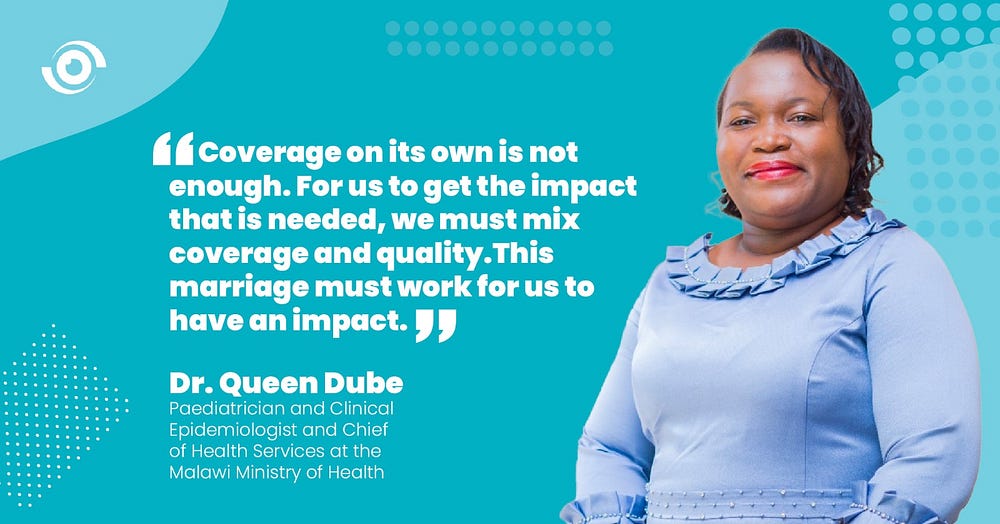
Factors critical to building strong health systems.
In a panel discussion, Dr Tegbar Sendekie, Chief of Party, Health Workforce Improvement Program, Jhpiego, Dr Swaraj Rajbhandari, Senior Consultant Ob/Gyn, Nidan Hospital, Nepal, Mr Aser Minoungou, Executive Director, Central African Medicine Stores, and Dr Amit Thakker, Chairman, Africa Healthcare Federation deconstructed the factors required to build strong health systems that ensure positive health outcomes for mothers and newborns. The session was moderated by Ms Neha Mankani, Midwife and Regional Coordinator of the PUSH Campaign.
According to Dr Sendekie, “any drive to improve the quality of health care should bring the health workforce front and centre.” He went on to say that the critical dimensions of an effective and efficient health workforce are their number, accessibility to all segments of the population, skills and capacity to deliver quality care, and acceptability to the community they serve.
Dr Rajbhandari believes that evidence-based advocacy to policymakers, managers and health care service providers is vital to ensure that guidelines and protocols provided by the WHO are adhered to and implemented at the point of care. She added that the role of stakeholders in maternal and newborn health is critical to ensuring that service delivery is inclusive and equitable. To back up her argument, she gave an example of the deployment of learning resource packages and quality improvement tools to skilled birth attendants in Nepal. This initiative aimed to implement achievable standards of care, enhance the quality of care, and ultimately achieve improved maternal health outcomes.
Responding to a question on the role of the private sector in delivering quality care, Dr Thakker reminded the audience that in Africa as a whole, 50% of maternal and newborn health care is provided by the private sector. Recognising the importance of integrating private sector providers into health systems, he said, “If you leave half the player out, you can’t strengthen the health system”.
According to Dr Thakker, the private sector has continued to lead the way for innovations, research and development, and the advancement of commodities like new drugs that provide timely solutions to save a mother’s life when faced with challenges such as postpartum haemorrhage. Private sector providers have reached mothers and newborns globally in hard-to-reach and far-flung areas. For Dr Thakker, regulation, financing, and incentives are the three most important factors that will ensure that the private sector can provide quality care for women and newborns.
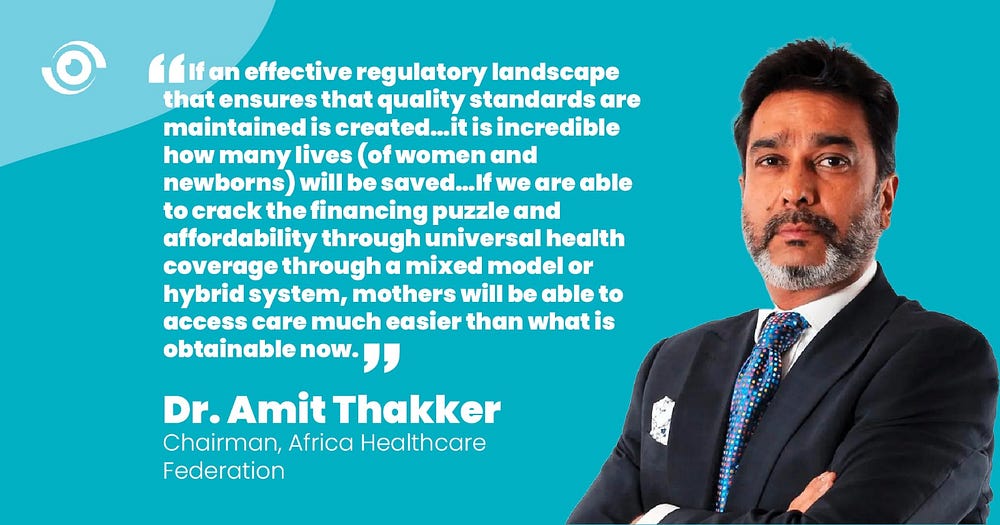
Strengthening the midwife workforce to empower women and their families through better quality care: AFIAT Case Study
In Afghanistan, Assistance for Families and Indigent Afghans to Thrive (AFIAT) provides a group-based antenatal and postnatal model of care which provides participating women with a sense of community and sisterhood. During the sessions, mothers learn how to maintain good health during pregnancy and postpartum. Midwives conduct self-assessments for the women and screen them for prenatal depression while conducting individual check-ups and connecting them to the proper care at the right time.
Engaging family members such as husbands and mothers-in-law has helped improve attendance at these sessions because of their physical and emotional support. After the sessions, women admitted to becoming more confident and knowledgeable about their pregnancy journey. Through this initiative, midwives empower mothers and their families with the correct information while providing a safe space and quality care to achieve better maternal and newborn health outcomes.
The case study results highlight the significance of equipping midwives with the necessary knowledge, skills, and competencies to deliver high-quality care to women and their families. It emphasises the importance of promoting a multidisciplinary approach to care through effective collaboration among midwives, other healthcare professionals and stakeholders and highlights the significance of community engagement and participation. It offers essential insights and lessons that can contribute to strengthening the midwife workforce, ultimately empowering women and their families through better quality care.
In 2021, White Ribbon Alliance launched the “Midwives Voices, Midwives Demands” global report, which analyses the top demands of over 56,000 midwives from 101 countries. Midwives indicated that to provide better quality care, they need more and better supported human resources, well-functioning health facilities with adequate supplies, and professional development opportunities, among other needs.
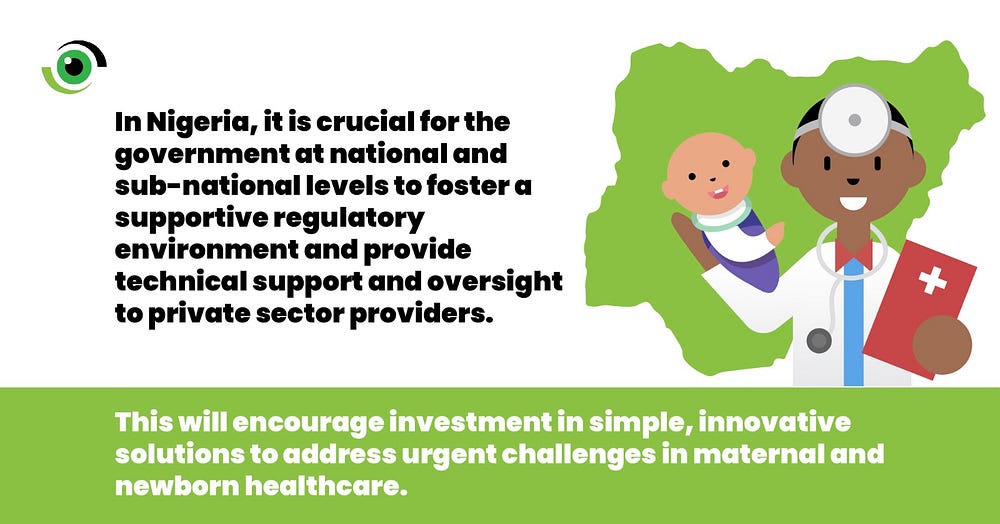
Recommendations for action
Here are some recommendations from the panel session:
- Challenges being faced in the demand and supply of quality maternal and newborn health must become the springboard for the creation of innovative solutions that build systems that can effectively address the needs of women, newborns, and their families and communities.
- People, products and processes employed in the maternal and newborn care continuum must be empowered through regulation, innovative financing, and capacity building to provide a better quality of care to ensure that women and their newborns can survive and thrive for the rest of their lives.
- Evidence-based advocacy to policymakers, managers and health care service providers is critical to ensuring that guidelines and protocols provided by WHO are adhered to and implemented at the point of care.
- For Nigeria, a critical takeaway is for the government at national and sub-national levels to create a friendly regulatory environment, technical support, and oversight to private sector providers to invest in providing simple, innovative solutions for the most pressing issues in maternal and newborn health care.
Click here to watch the full plenary.


